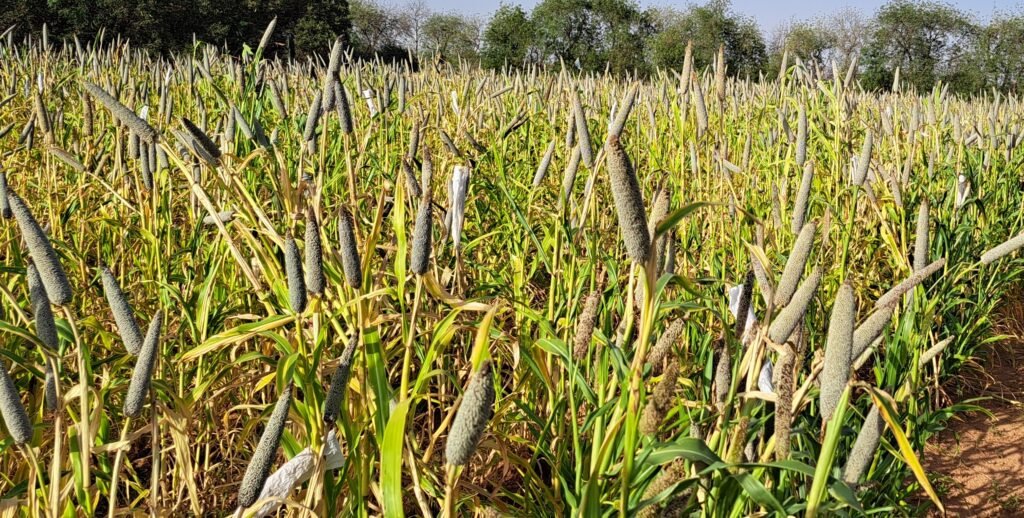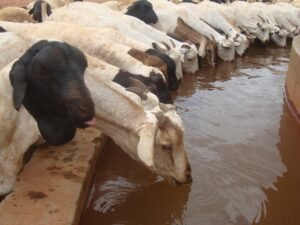By Zablon Oyugi, June 3, 2025, In a significant stride toward bolstering Nigeria’s food security, the Lake Chad Research Institute (LCRI) has unveiled 21 improved wheat varieties, six barley varieties, and 11 millet varieties. These developments aim to enhance farmers’ agricultural productivity and resilience, particularly in the country’s northeastern regions grappling with food insecurity.
The announcement was made during the 2025 LCRI In-House Review Meeting and North East Zonal Refills Workshop held in Maiduguri.
According to Professor Babagana Kabir, Director and CEO of LCRI, the move shows the institute’s commitment to addressing the challenges faced by farmers.
“Over the years, we have remained steadfast in our commitment to improving food security, enhancing farmers’ productivity, and contributing to national economic development through sustainable agricultural practices,” he stated.
Established in 1975, LCRI operates under the supervision of the Agricultural Research Council of Nigeria (ARCN) with its core mandates including the genetic improvement of wheat, millet, and barley, as well as investigating agricultural production challenges in Nigeria’s northeastern agro-ecological zone.
LCRI also collaborates with state and federal agencies to provide technical services to farmers and agro-allied industries.
The newly released crop varieties are tailored to Nigeria’s diverse agro-ecological conditions. For wheat, the varieties include LACRIWHIT-4 (Atilla-Gan-Atilla), LACRIWHIT-5 (Norman), LACRIWHIT-6 (Reyna 28), LACRIWHIT-9 (Kauz), LACRIWHIT-10 (Pastor), LACRIWHIT-11 (Imam), LACRIWHIT-12D (MBA-MAJA), LACRIWHIT-13D (ALTAR-84), LACRIWHIT-7 (Reyna 15), and LACRIWHIT-8 (Crow’s).
These varieties have demonstrated yield potentials ranging from 4.0 to 7.5 tons per hectare, significantly surpassing previous benchmarks.
In the realm of millet, LCRI has introduced varieties such as LCIC-MV3 (Super SOSAT), LCIC-MV2 (LCIC 9702), LCIC MV-1 (SOSAT-C88), and LCIC-MV-4 (PEO 5984 Jirani). These millet varieties have improved yields from 1.0 to 4.5 tons per hectare, offering farmers more resilient and productive options.
The barley varieties, developed in collaboration with the Institute for Agricultural Research (IAR) at Ahmadu Bello University, Zaria, are designed to thrive in Nigeria’s specific climatic conditions, although specific names were not disclosed.
LCRI’s efforts extend beyond varietal development. The institute has pioneered technologies addressing soil fertility, pest and disease management, water-use efficiency, and climate-smart agriculture. These initiatives aim to equip farmers with comprehensive tools to enhance productivity and sustainability.
A notable collaboration includes the release of the “Crown” wheat variety, a heat-tolerant and super-early maturing durum wheat developed in partnership with Olam Agri and the International Centre for Agricultural Research in the Dry Areas (ICARDA). Dr. Kachalla Mala, an LCRI breeder, highlighted the importance of such collaborations: “Availability and accessibility of quality seed varieties are important to farmers, and we are excited to release ‘Crown,’ a heat-tolerant, high-yielding wheat variety.
The institute also focuses on empowering local communities. Female cooperative unions are receiving “Crown” seeds, training in agronomic management, and initial financing to produce certified seeds, fostering local seed multiplication and commercialization.
These advancements align with Nigeria’s broader agricultural goals. By enhancing crop yields and resilience, LCRI’s initiatives contribute to national food security and economic development.
As Professor Kabir noted, “We key into the Renewed Hope Agenda of President Bola Ahmed Tinubu and the agricultural and rural development initiatives of His Excellency, the Executive Governor of Borno State, Professor Babagana Umara Zulum.”
The release of these improved crop varieties marks a significant milestone in Nigeria’s agricultural landscape, offering farmers robust tools to combat food insecurity and adapt to changing climatic conditions.







